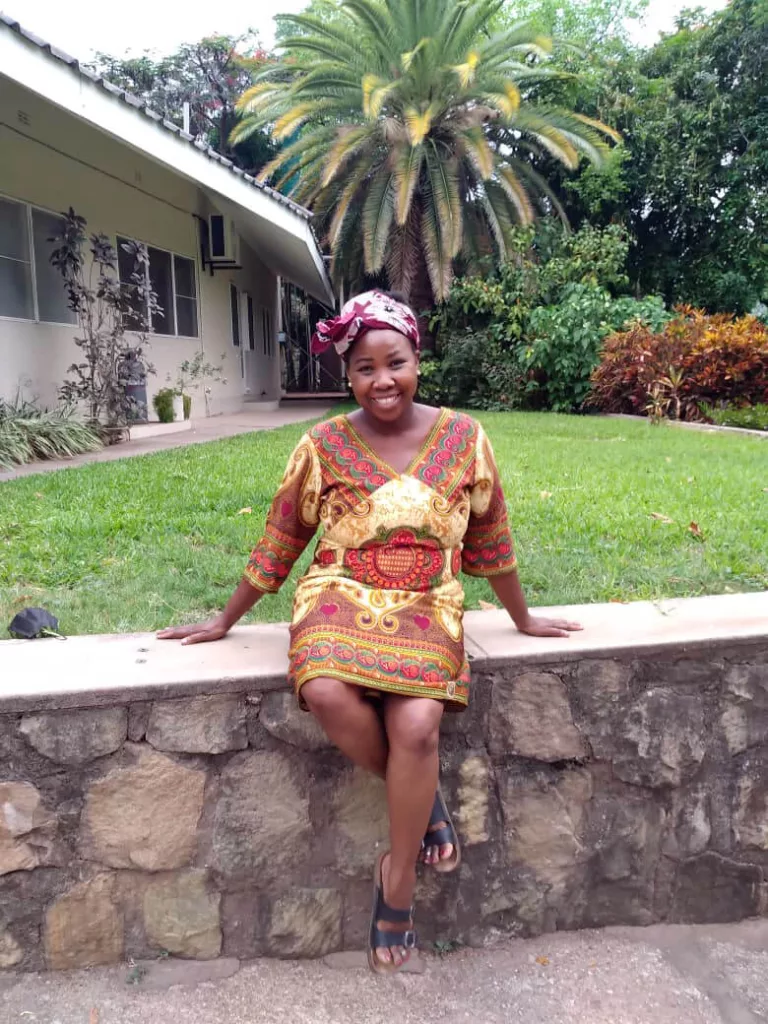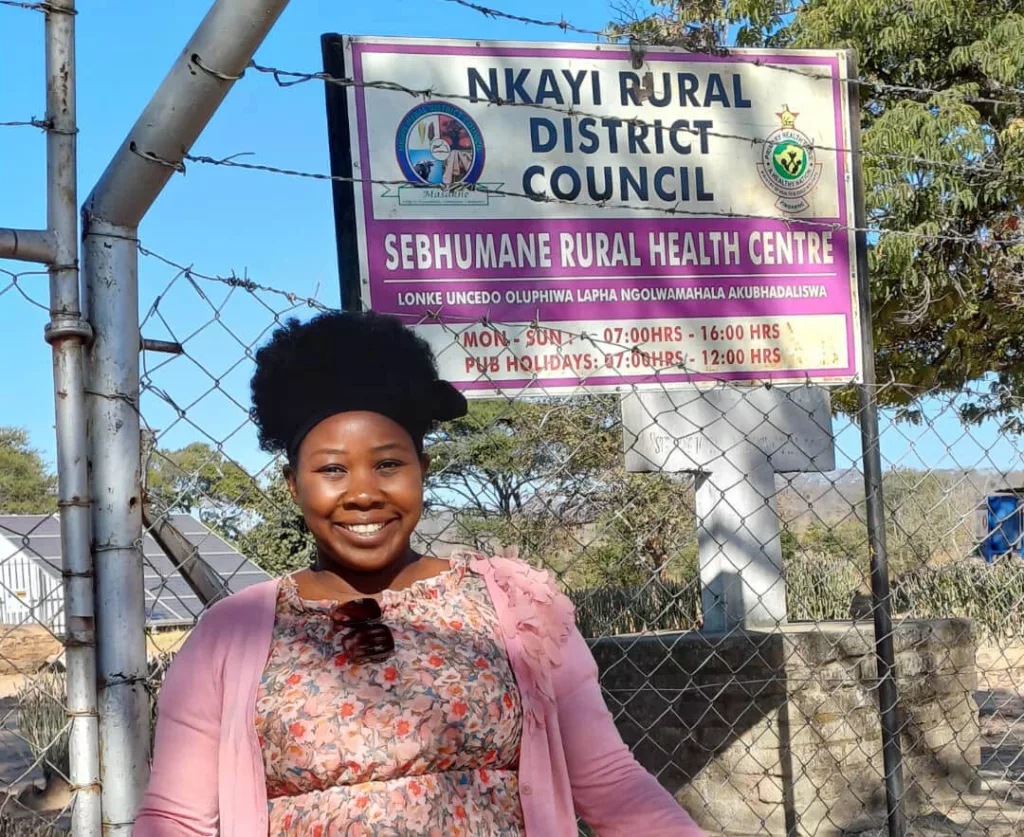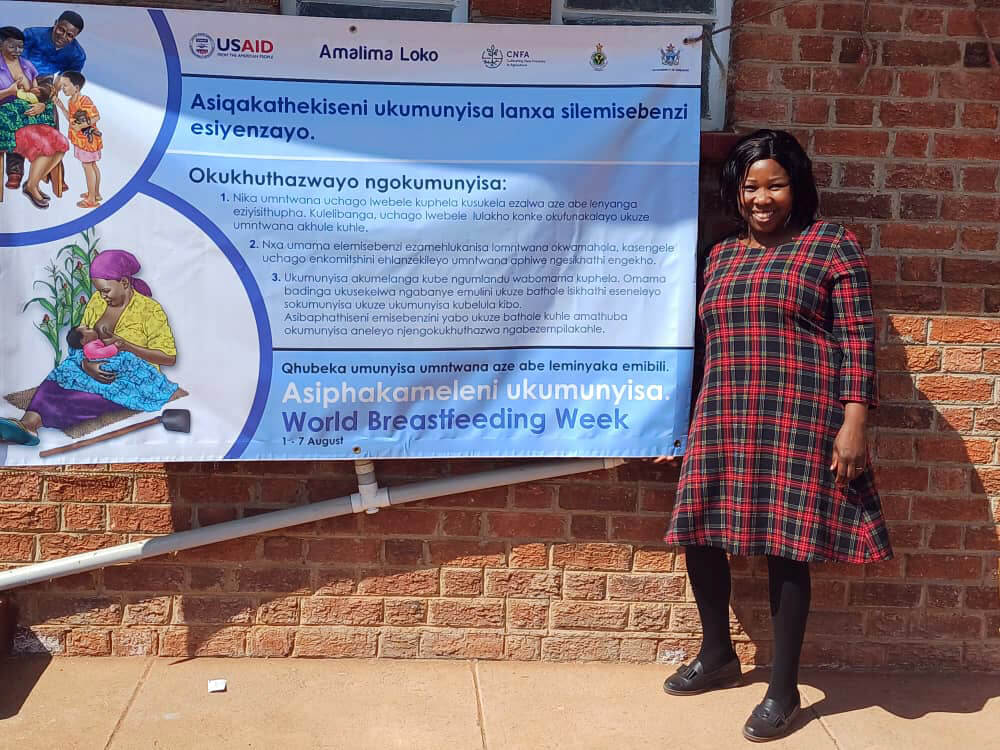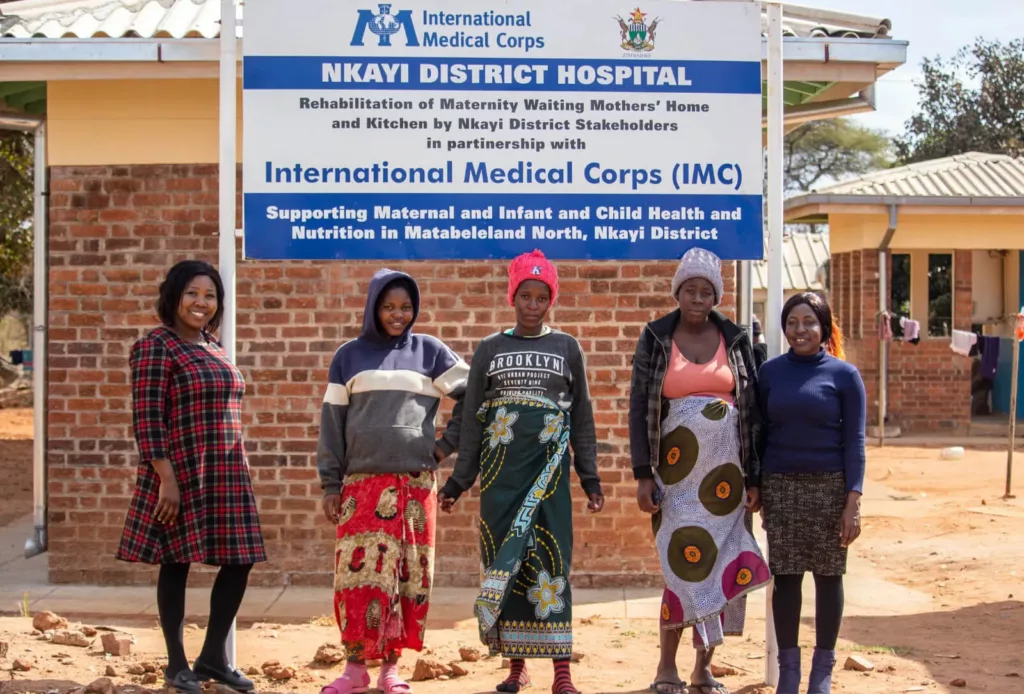Meet Pamela Murakwani, our Nutrition Director in Zimbabwe.
Where are you based?
I am based in the beautiful city of Bulawayo, also popularly known as “The City of Kings (and Queens).” It’s my hometown and the second-largest city in Zimbabwe.

What is your background?
I’m a public health nutritionist and graduated with a Master’s degree in public health nutrition from the London School of Hygiene and Tropical Medicine. I have extensive experience in designing and putting integrated nutrition programs in place for young children, women of reproductive age and communities in general. My experience has mostly been in sub-Saharan Africa. I’ve been at International Medical Corps since November 2013.
What kind of work do you do in a typical day?
I grab a coffee as soon as I get to the office and start by checking emails and working first on the high-priority issues. This is important to ensure that I’m in the loop on any key technical programming issues that need my immediate attention or action.
We recently held a big quarterly review meeting with the health and nutrition team, and this was a great way to pause and reflect, to review how the program is going, and find out what’s working well, what needs to be improved and what we can do better. We refined some programs to ensure that we have better outcomes and serve the communities in the best way possible!
I also travel to the field to support the team, monitor their activities and stay abreast of how things are going, which helps us to quickly identify gaps. The field visits are always a great opportunity to talk to people who benefit from our programs—including mothers with young children—and engage with them in a meaningful way. One of the most enjoyable parts of the field visits is meeting with the program volunteers, who are the real changemakers in the community. I value their input, and it’s always fantastic to see them at work—they are motivated to make a difference in their communities for a healthier and more nutrition-secure Zimbabwe.

What are you working on now?
I am most excited about finalizing a recipe guide that promotes nutritious, locally available and indigenous foods for children. It’s been a great team effort, and a lot of work has gone into the process—from the formative research we conducted to determine what locally available and indigenous foods could be promoted, to holding cooking demonstrations with some of the mothers to make and taste different recipes—like yogurt made from goats’ milk, and baobab fruit powder and porridge enriched with indigenous wild fruit for young children. This is really important for the communities because this year we are having an El Niño-induced drought, and this makes communities more vulnerable to food and nutrition insecurity. We are discussing drought mitigation strategies and looking at how our program can help communities become more resilient.
As part of the fight against malnutrition, I am also working with the social behavior change team to roll out local campaigns to create awareness among caregivers, families and communities of the importance of animal-source foods in the diets of pregnant and lactating mothers and young children. This requires multisectoral efforts, and we are working closely with colleagues who work on agriculture, livelihoods and resilience. In this campaign, we are using health and nutrition dialogues at the community level to encourage communities to challenge long-standing myths and taboos, such as those that dictate that young children should not eat meat and eggs, and to talk about hard issues, such as why women—and not just men or other influential family members—should be involved in health and nutrition decision-making at the household level. It’s exciting work that’s contributing to making a real and lasting difference in communities—because sustainability is key.
What are you most proud of achieving at International Medical Corps?
Working at International Medical Corps has been very rewarding for me. Being able to do this work and see the positive changes in people’s lives is rewarding beyond measure. As a result, I genuinely enjoy what I wake up to do every day. Entire communities are adopting the recommended practices, contributing to more resilient communities and sustainable changes. It’s been worth all the hard work our project teams have put in—the babies are healthy, and we have happy, knowledgeable and skilled mothers. The babies will grow into healthy adults with a greater chance of reaching their full developmental potential—so we are making a difference not only for this generation, but for the next.

Tell us about a time you really made a difference at International Medical Corps.
From 2013 through 2020, we set up more than 4,000 care groups that reached more than 30,000 mothers and caregivers. Care groups are peer-to-peer support groups that bring mothers together to learn, engage and share their experiences in maternal and child nutrition. We refined the approach to make it appropriate for the context, and we put International Medical Corps’ name on the map in the province and the country as one of the pioneering organizations for care groups. We went back to a few of those communities later, and it was inspiring to see that some of the volunteers are still championing the care groups years after the program ended.
Something else we are proud of as a team is that we have constructed and rehabilitated waiting mother homes in some of the most deprived districts in the country—contributing to reducing infant and maternal mortality.
What do you like best about working at International Medical Corps?
International Medical Corps has exposed me to so many highly capable, brilliant and interesting people, and I have learned a lot from my peers. Being part of this kind of team is incredible. Working with people who are passionate about addressing systemic challenges has contributed to my growth as an all-around nutrition, health and development practitioner. Each day brings new opportunities and challenges, making days at work quite active and exciting at times.
What have you learned in your time here?
I have learned that, to make a lasting difference, it’s important to work together to address the real deep-seated issues in communities, and we can only understand what those real issues are when we talk to the people we serve and when we appreciate the challenges communities face—including lack of access to nutritious and locally available foods, health services, safe water and sanitation. I have also learned that, most of the time, solutions lie with the people we serve. The key is to build on what communities already have or can contribute, and we provide the knowledge, skills and support that they need. This way, communities will thrive as they are empowered to address the problems they face, and they contribute to coming up with lasting solutions.
Lastly, I have learned that solving nutrition challenges requires a multisectoral effort—collective action from various sectors including health, agriculture, livelihoods, and water, sanitation and hygiene. Each sector plays a crucial role in highlighting the interconnectedness of our endeavors. This collaboration is key, if we want to achieve success in the work that we do. In this way, we ensure that the communities we serve move “from relief to self-reliance,” as we say at International Medical Corps.
